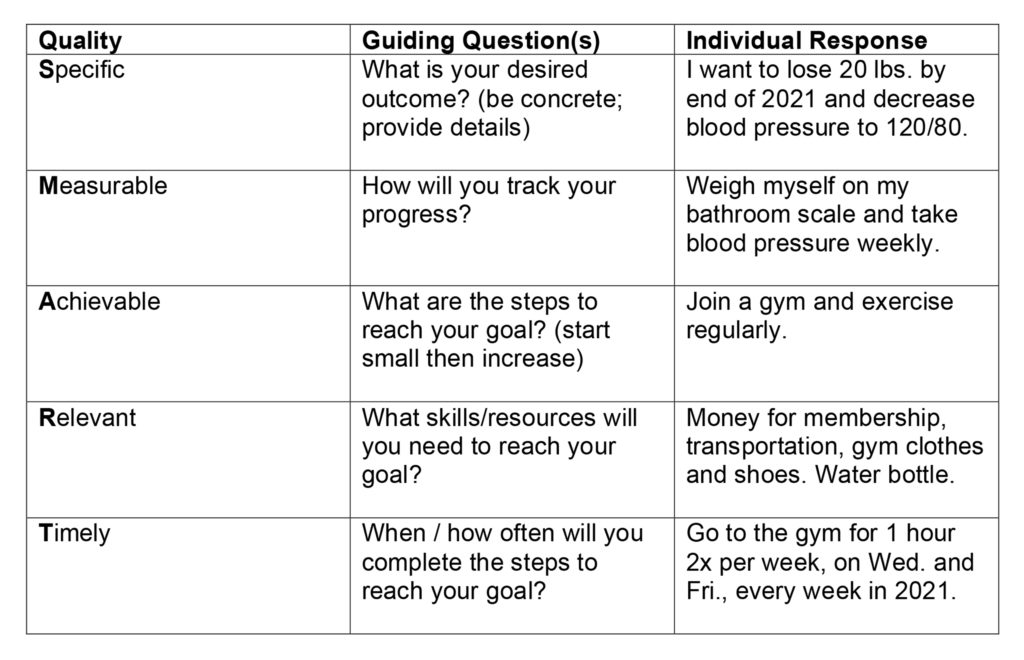
For many of us with goals to improve our health, January marks the season of resolutions.
If you’ve decided to lose weight, quit smoking, be more active, or improve your mood this year, you’re not alone. According to a recent survey, more than 74% of American adults plan a New Year’s resolution, and a whopping 45% of these resolutions are health-related.
The bad news? Numerous studies indicate the vast majority of those making New Year’s resolutions abandon their resolution during the year, and over a quarter call it quits by mid-February.
There are a lot of reasons for this, including setting our sights too high.
When the New Year dawns, many of us—understandably—feel more ambitious and eager to make changes than we do on a typical afternoon in mid-February and, as a result, end up selecting goals we aren’t equipped to fulfill.
To avoid the “crash and burn” scenario, ask yourself:
- What am I most excited about changing or what’s most important to me?
- What can I realistically commit to?
Being honest with yourself about what’s keeping you from fulfilling a goal can help you be successful later.
Changing habits is hard, no matter how you slice it. But there are ways to set yourself up for success. To give yourself the best chance of following through, make sure your New Year’s resolution is SMART, which stands for specific, measurable, achievable, relevant and timely.
SMART goals provide the specificity and measurability we all need to stay on track—and to realize when we’ve gotten off track and need to course correct.
For example, joining a gym is a good goal. But it isn’t a SMART goal.
To turn this good goal into a SMART goal, put a little more definition around the goal, guided by what you’re actually hoping to accomplish.
Here’s one way this goal could be tweaked to include the qualities that make a goal SMART:
Often, we think that to make a big change, we need to sign up for a big challenge.
But the truth is that most big changes are just collections of many, many small changes that pile up over a long span of time. By asking ourselves if our New Year’s resolutions are specific, measurable, achievable, relevant and timely, we can set ourselves up for making those small changes that add up to long-lasting impacts.
We will end up reaping the benefits—not just in January but throughout the whole year.

 /a>
/a>
 /a>
/a>
 /a>
/a>